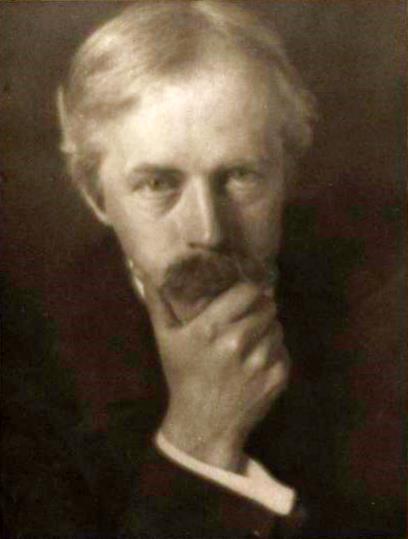|
Three Songs (1918-19)
''Three Songs'' is a set of songs for high voice and piano composed in 191819 by John Ireland (18791962). It consists of settings of three poems by Arthur Symons Arthur William Symons (28 February 186522 January 1945) was a British poet, critic and magazine editor. Life Born in Milford Haven, Wales, to Cornish parents, Symons was educated privately, spending much of his time in France and Italy. In 1884 ... (18651945). A typical performance of the songs as a set takes seven minutes. The poems are: # "The Adoration" # "The Rat" # "Rest" References Song cycles by John Ireland Classical song cycles in English 1919 compositions Musical settings of poems by Arthur Symons {{classical-composition-stub ... [...More Info...] [...Related Items...] OR: [Wikipedia] [Google] [Baidu] |
John Ireland (composer)
John Nicholson Ireland (13 August 187912 June 1962) was an English composer and teacher of music. The majority of his output consists of piano miniatures and of songs with piano. His best-known works include the short instrumental or orchestral work " The Holy Boy", a setting of the poem " Sea-Fever" by John Masefield, a formerly much-played Piano Concerto, the hymn tune Love Unknown and the choral motet "Greater Love Hath No Man". Life John Ireland was born in Bowdon, near Altrincham, Cheshire, into a family of English and Scottish descent and some cultural distinction. His father, Alexander Ireland, a publisher and newspaper proprietor, was aged 69 at John's birth. John was the youngest of the five children from Alexander's second marriage (his first wife had died). His mother, Annie Elizabeth Nicholson Ireland, was a biographer and 30 years younger than Alexander. She died in October 1893, when John was 14, and Alexander died the following year, when John was 15. [...More Info...] [...Related Items...] OR: [Wikipedia] [Google] [Baidu] |
Arthur Symons
Arthur William Symons (28 February 186522 January 1945) was a British poet, critic and magazine editor. Life Born in Milford Haven, Wales, to Cornish parents, Symons was educated privately, spending much of his time in France and Italy. In 1884–1886, he edited four of Bernard Quaritch's ''Shakespeare Quarto Facsimiles'', and in 1888–1889 seven plays of the ''"Henry Irving" Shakespeare''. He became a member of the staff of the ''Athenaeum'' in 1891, and of the '' Saturday Review'' in 1894, but his major editorial feat was his work with the short-lived '' Savoy''. His first volume of verse, ''Days and Nights'' (1889), consisted of dramatic monologues. His later verse is influenced by a close study of modern French writers, of Charles Baudelaire, and especially of Paul Verlaine. He reflects French tendencies both in the subject-matter and style of his poems, in their eroticism and their vividness of description. Symons contributed poems and essays to ''The Yellow Book'', includ ... [...More Info...] [...Related Items...] OR: [Wikipedia] [Google] [Baidu] |
Song Cycles By John Ireland
A song is a musical composition intended to be performed by the human voice. This is often done at distinct and fixed pitches (melodies) using patterns of sound and silence. Songs contain various forms, such as those including the repetition and variation of sections. Written words created specifically for music, or for which music is specifically created, are called lyrics. If a pre-existing poem is set to composed music in classical music it is an art song. Songs that are sung on repeated pitches without distinct contours and patterns that rise and fall are called chants. Songs composed in a simple style that are learned informally "by ear" are often referred to as folk songs. Songs that are composed for professional singers who sell their recordings or live shows to the mass market are called popular songs. These songs, which have broad appeal, are often composed by professional songwriters, composers, and lyricists. Art songs are composed by trained classical composers ... [...More Info...] [...Related Items...] OR: [Wikipedia] [Google] [Baidu] |
Classical Song Cycles In English
Classical may refer to: European antiquity *Classical antiquity, a period of history from roughly the 7th or 8th century B.C.E. to the 5th century C.E. centered on the Mediterranean Sea *Classical architecture, architecture derived from Greek and Roman architecture of classical antiquity *Classical mythology, the body of myths from the ancient Greeks and Romans *Classical tradition, the reception of classical Greco-Roman antiquity by later cultures *Classics, study of the language and culture of classical antiquity, particularly its literature *Classicism, a high regard for classical antiquity in the arts Music and arts *Classical ballet, the most formal of the ballet styles *Classical music, a variety of Western musical styles from the 9th century to the present *Classical guitar, a common type of acoustic guitar *Classical Hollywood cinema, a visual and sound style in the American film industry between 1927 and 1963 * Classical Indian dance, various codified art forms whose theo ... [...More Info...] [...Related Items...] OR: [Wikipedia] [Google] [Baidu] |
1919 Compositions
Events January * January 1 ** The Czechoslovak Legions occupy much of the self-proclaimed "free city" of Pressburg (now Bratislava), enforcing its incorporation into the new republic of Czechoslovakia. ** HMY ''Iolaire'' sinks off the coast of the Hebrides; 201 people, mostly servicemen returning home to Lewis and Harris, are killed. * January 2– 22 – Russian Civil War: The Red Army's Caspian-Caucasian Front begins the Northern Caucasus Operation against the White Army, but fails to make progress. * January 3 – The Faisal–Weizmann Agreement is signed by Emir Faisal (representing the Arab Kingdom of Hejaz) and Zionist leader Chaim Weizmann, for Arab–Jewish cooperation in the development of a Jewish homeland in Palestine, and an Arab nation in a large part of the Middle East. * January 5 – In Germany: ** Spartacist uprising in Berlin: The Marxist Spartacus League, with the newly formed Communist Party of Germany and the Independent Social ... [...More Info...] [...Related Items...] OR: [Wikipedia] [Google] [Baidu] |


